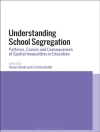This updated second edition presents an analytical description of the education systems of all European countries, following common guidelines. These conceptual guidelines consider various criteria concerning presumptions as to the quality of a good education system. One of the book central aims is to explore the paradoxical character of education, i.e. the relationship between universal values and the search for a national identity. The common structure of the different country analyses oriented by crucial problems of education worldwide guides to discover common patterns of European education compared to that of education systems outside Europe, making its reading relevant to educators around the world. The handbook provides many suggestions for further study.
Table of Content
Preface.- Introduction (Wolfgang Hörner).- Albania (Michael Schmidt-Neke).- Andorra (Wendelin Sroka).- Armenia (Susanne Bandau/Davit Ganjalyan).- Austria (Josef Thonhauser/Ferdinand Eder).- Azerbaijan (Eric Lepisto).- Belarus (Stephan Malerius).- Belgium (Christiane Brusselmann-Dehairs).- Bosnia-Herzegovina (Katarina Batarilo/Volker Lenhardt).- Bulgaria (Peter Bachmaier).- Croatia (Marko Palekčić/Igor Redaka/Nenad Zekanović).- Cyprus (Petros Pashiardis/Andreas Tsiakkiros).- Czech Republic (Botho von Kopp).- Denmark (Palle Rasmussen/Tobias Werler).- Estonia (Viive-Riina Ruus/Priit Reiska).- Faroe Islands (Wendelin Sroka).- Finland (Matti Meri).- France (Wolfgang Hörner/Guillaume Many).- Georgia (Iwa Mindadse).- Germany (Hans Döbert).- Greece (Panos Xochellis/Anastasia Kesidou).- Hungary (Magdolna Rébay/Tamas Kosma).- Iceland (Ragnheidur Karlsdottir/Thorarinn Stefansson).- Ireland (Maureen Killeavy/Mary Clynes/Mary Clarke).- Italy (Sara-Julia Blöchle).- Kosovo (Lulzim Dragidella).- Latvia (Irēna Žogla/Rudite Andersone/Emilija Černova).- Liechtenstein (Botho von Kopp).- Lithuania (Dalia Kiliuviene).- Luxembourg (Marc Barthélemy).- Macedonia (Wolf Oschlies).- Malta (Christopher Bezzina).- Moldavia (Reinhard Hannesschläger).- Monaco (Wendelin Sroka).- Montenegro (Saša Gavrič).- Netherlands (Bob van de Ven).- Norway (Tobias Werler/Nina Volckmar).- Poland (Wolfgang Hörner/Inetta Nowosad).- Portugal (Jesus Maria Sousa/Carlos Noguera Fino).- Romania (Laura Dumbraveanu).- Russian Federation (Gerlind Schmidt).- San Marino (Wendelin Sroka).- Serbia (Vera Spasenović/Aleksandra Petrović/Slavica Maksić).- Slovak Republic (Beata Kosová/Štefan Porubský).- Slovenia (Jože Mlakar).- Spain (Maria Jesús Martínez Usarralde).- Sweden (Tobias Werler/Silwa Claesson).- Switzerland (Lucien Criblez).- Turkey (Yasemin Karakaşoğlu).- Ukraine (Marina Želudenko/Alla Sabitowa).- United Kingdom (Neville Harris/Stephen Gorard).
About the author
Hans Döbert Professor, German Institute for International Pedagogical Research, Berlin and University of Erfurt Research Profile:Empirical and Comparative Educational Research; Education and Monitoring, ; Research on Schools and Teachers Botho von Kopp Ph.D.Associated Researcher, German Institute for Pedagogical Research, Frankfurt/M.Research Profile: Comparative Education Research, Education Policy and Governance Research, Education Stratification Research. Wolfgang Hörner Professor of Comparative Education, Universität Leipzig Research Profile:Methodology of Comparative Education; Analysis of Educational Systems; Education in Central and Eastern European Countries; School and Work Lutz R. Reuter Professor of Educational Policy Research, Helmut Schmidt University, Hamburg Visiting Professorships: Northwestern University, Chicago, USA; University of Stellenbosch, RSA; University of Maputo, Mocambique; Technical University of Nanjing, China Research Profile:Education Systems and Comparative Education; Educational Governance and Law; Education Policy and Politics












